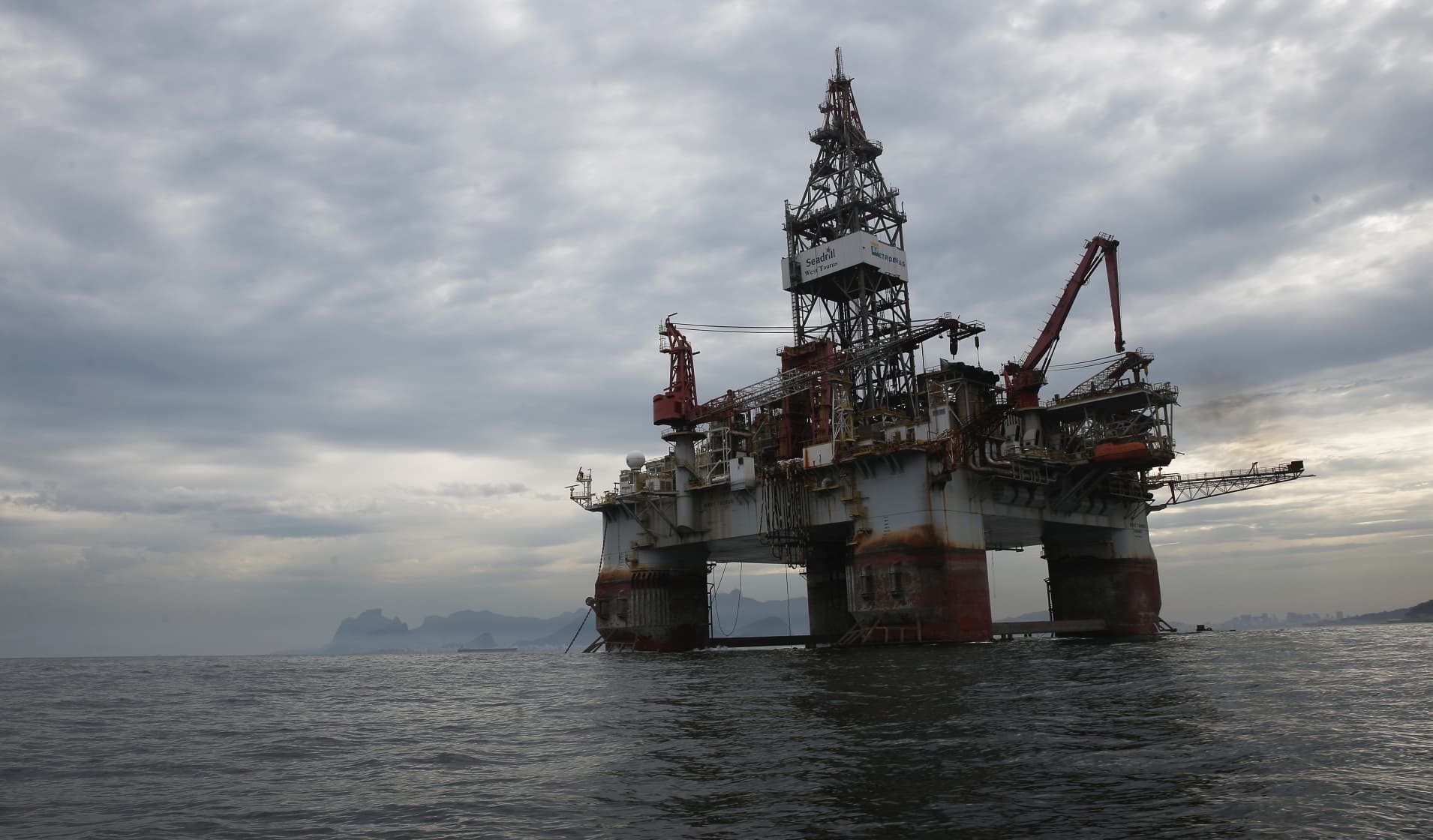
A Petrobras oil platform floats in the Atlantic Ocean near Guanabara Bay in Rio de Janeiro.
Getty Images
Oil prices fell about 1.5% on Thursday after a media report cast
doubt on the possibility of an interim U.S.-China trade deal and as a
meeting of the OPEC+ alliance yielded no decision on deepening crude
supply cuts.
Oil was pressured further after the European Central
Bank cut its deposit rate to a record low -0.5% from -0.4% and said it
will restart bond purchases of 20 billion euros a month from November to
prop up euro zone growth.
Brent
crude futures were down 74 cents, or 1.2%, at $60.07 a barrel by 1:54
p.m. EDT (1754 GMT). U.S. West Texas Intermediate crude futures fell 92
cents, or 1.7%, to $54.83 a barrel. Both were heading for a third
session of losses.
Both Brent and WTI fell below the $60 and $55 a barrel marks during the session, triggering auto-selling.
Oil
futures extended their losses after a senior White House official
denied a Bloomberg News report that the United States was considering a
temporary trade agreement with China, according to CNBC.
The
prospect that the world’s two largest economies made some concessions in
a protracted trade war, according to a previous report, supported
prices earlier in the session.
“All of a sudden we had a ray of hope,” said Phil Flynn, an analyst at Price Futures Group in Chicago.
“Now that they’re downplaying that and, immediately, the stocks went back down, gold came back up and oil went back down.”
Also
hitting oil prices were comments by Saudi Arabia’s new energy minister,
Prince Abdulaziz bin Salman, who said deeper cuts would not be decided
upon before a meeting of the Organization of the Petroleum Exporting
Countries planned for December.
The meeting yielded a promise to
keep countries within the production quotas they committed to in a
global supply deal, which would limit oil coming to the market as
Nigeria, Iraq and Russia have, at times, produced more than their
allocations.
A statement from OPEC and its allies, a grouping
known as OPEC+, said oil stocks in industrial countries remained above
the five-year average. Oman’s energy minister said “the outlook is not
very good for 2020.”
Prince Abdulaziz said Saudi Arabia would keep
cutting by more than it pledged in the pact that has throttled supply
from OPEC+ by 1.2 million barrels per day.
Also feeding the
bearish sentiment, the International Energy Agency said surging U.S.
output would make balancing the market “daunting” in 2020.
“Booming
shale production has allowed the U.S. to close in on, and briefly
overtake, Saudi Arabia as the world’s top oil exporter ... in June,
after crude exports surged above 3 million bpd,” said the agency that
advises industrial economies on energy policy in its monthly report.
No comments:
Post a Comment